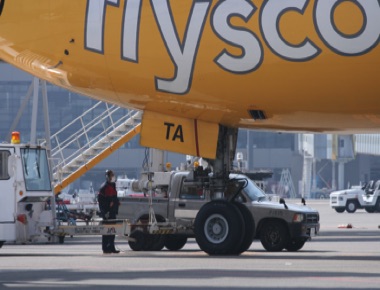
ICAO Aviation English Language
Insufficient English language proficiency, both in comprehension and expression, has resulted in incident and accident reports throughout the world of civil aviation.
Following a number of major accident investigations that indicated lack of English proficiency as a contributing factor, in 1997, the International Civil Aviation Organisation (ICAO) set about reviewing this critical problem with high priority.
ICAO is responsible for providing Standards that govern all aspects of international aviation and their review has resulted in an international requirement for all pilots and air traffic controllers to reach a demonstrate a minimum level of proficiency in the English language.
This minimum requirement is now compulsory for aviation radiotelephony since March 2008 and all pilots and air traffic controllers must meet this level and do so repeatedly throughout their careers.
It is widely accepted that pilots and air traffic controllers from Non English Speaking Backgrounds (NESBs) must have adequate knowledge, production and understanding of radio phraseology in routine situations.
However in non- routine, emergency situations, standard phraseology does not suffice and plain English is often reverted to.
So it is in these situations where the secure use of a common language can be crucial to surviving an emergency and reaching a safe outcome.
To do this everybody included in the situation must have adequate experience with the following:
Listening skills:
Low acoustic quality, regional accents, unexpectedness
Speaking skills:
Concise but not ambiguous, alternate phraseology and plain language, alternate use of English, sensitivity to register
Cognition skills:
Memorization, rapid response, multi-tasking
Relational skills:
Co-operation, problem solving, conflict resolution and negotiation
